- Home
- Warhammer 40K
Spear of the Emperor - Aaron Dembski-Bowden Page 12
Spear of the Emperor - Aaron Dembski-Bowden Read online
Page 12
‘Where are the Spears?’ she shouted, loud enough to distort the probe’s visual feed. I could still barely hear her over the cracking of lasguns and the deeper thunder of tank cannons. ‘Where are the Spears?’
I didn’t have an answer for her. Our hololithics were patchy and scrambled, even with our Damocles keeping close to the main column. My grasp of the wider battle was limited. All I knew is that Amadeus was redeploying, but one warrior – even our master – wouldn’t be able to stem the losses along the palatial avenues.
This would be his sixth redeployment since the start of the siege. He’d fought in the streets and across rooftops, forcing other tendrils of the besieging host to advance ahead when they had lost momentum, saving broken units from annihilation when they were almost overrun by the foe.
‘Two minutes,’ he voxed.
I glanced to my uppermost monitor, seeing through his eyes. At that moment, his world was confined by arching steel walls, lit by the vicious cast of emergency lighting. Silhouettes moved with him in that gloom, armoured shadows whose azure ceramite was a savage black in the crimson light.
I tuned into his helm’s audio-feed. The industrial whine of engines cycling up droned over all other sound, though I caught the percussive slams of restraint harnesses locking into place, and harsh words in guttural Nemetese.
He wasn’t deploying alone, on foot, or in the bay of a Valkyrie, surrounded by soldiers of the Guard. He was going in with the Spears. In my surprise, I looked to Tyberia over my shoulder, seeing the same expression on her features as she realised the same thing.
The Novaskyr lieutenant was shouting for answers.
‘Reinforcements are inbound,’ I promised her.
In the middle of relaying what she intended to do with the platoons under her command, Eskar jerked forward a fraction of a second before my probe’s feeds went dark. I thought my servo-skull had been struck by enemy fire, but its systems still showed a stream of cascading green symbols. Full function, but somehow blinded.
As I rotated the probe, the darkness slid greasily down in an uneven curtain, leaving a red haze across the visual feed. Flecks of black still covered whole patches of the monitor. It wasn’t damage at all. The insides of Lieutenant Eskar’s head were splashed against my servo-skull. I saw her body below me, shot through by stubber fire.
Other Guard flew past, casting flickering shadows over my diminished sight. They were fleeing from the overwhelming foe. The 89th, at last, had broken.
A gunship roared overhead; not over my probe, but above our Damocles tank, powering towards the front lines on screaming thrusters.
‘Ten,’ Amadeus voxed. ‘Nine. Eight. Seven…’
4
They dropped into the middle of the rout. The moment their boots struck the earth, every weapon in the district swung their way. Brêac wanted nothing less; over the Immortals’ vox, their inter-squad communication focused on drawing the enemy’s fire away from the regrouping 89th.
Their Overlord gunship hovered above the main avenue, an ugly falcon of cobalt ceramite, mirages of heat curtaining beneath its downward engines. Plasma volleys blasted from its turrets, sunfire bursts detonating in succession, followed by rockets streaming from under its wings. The remaining buildings came down in slides of fiery rubble, bodies spilling within the wreckage. Every Exilarchy gun-nest within a half-mile radius was taken apart in the time it took my heart to beat ten times.
The gunship didn’t stay. Already our ungainly, angelic saviour was climbing, its payload spent, its cargo unloaded. It streaked skywards, racing for orbit to rearm and refuel. Worm-trails of surface-to-air missiles chased it, fired too late from unready hands, crescenting off-target.
Hundreds of enemy troops, from impoverished militia to traitorous Guard, poured their fire into the avenue where a mere twenty Space Marines had landed. The Exilarchy’s mongrel brigades had tasted victory’s very edge. They wouldn’t allow a handful of warriors in ceramite to steal it back.
The Spears never held to a formation. They scattered, inviting the fire upon them, craving it if it meant the broken 89th would have time to reform. Spears scrabbled over rubble or crouched in cover formed by fallen masonry, never remaining still, always firing, turning, firing, pivoting, firing. Exilarchy soldiers burst open under the hammer blows of bolt shells striking home. Throne of the Emperor, there is no weapon more demoralising than the holy bolter. It doesn’t just fire, it roars; it doesn’t just kill, it destroys. Every bolt finding its target detonated in the body of its prey, drenching those nearby in steaming viscera. The reek in the air from so many burst-open bodies was intense enough to register on my probe’s sensoria clusters.
A second Overlord, converted to carry vehicles, roared overhead almost close enough to land. But this one never even slowed down. Two great shadows dropped from its hollow belly, vomiting tracer fire as they fell. The Repulsor tanks slammed against the earth, their ventral anti-grav plates taking the punishment of the thirty-yard plunge with twin sonic booms.
I couldn’t keep looking at the wider battle. With Amadeus on the ground, my place was with him. Tyberia’s duty was the same: we brought our probes in closer to our master, each one within boltgun range, splitting our attention between immediate threats in his vicinity and outward threats from afar.
‘Sniper team, fifteen degrees north, third merlon along the broken battlements. Novaskyr platoon pinned under heavy fire, forty yards north-north-east. To your right – in the ruins, Exilarchy officer, armed with an energised blade.’
A constant flow of warnings and awareness, streaming into his ears. He’d trained for this. This was how he waged war. He acknowledged neither of us as we spoke in ceaseless, overlapping murmurs, yet he reacted to everything we said. His bolter kicked and banged. His blade rose and fell, bit and tore.
We weren’t defenceless, even at this distance. Our servo-skulls were armed with needlers, spitting las-darts over Amadeus’ shoulders into foes he couldn’t turn to face, risking brief drifts from his side to track and cut down any enemies stalking from other directions.
When Amadeus reloaded in a moment of stolen silence, Tyberia and I still fed him the continual whisper of data from our probes. Even some of the Spears kept glancing his way, unused to the way he fought in brotherless focus, aware of every threat, eager for every target. His warcraft was no revelation to us; this was what we’d trained for and I’d performed the same duty for other Mentor Legion officers on every deployment. Tyberia, on her first deployment, also had a week of field experience now to add to her years of battle simulation training. She was as icy as any veteran helot.
I saw more than one Spear lose precious seconds taken aback by my master’s unending awareness of the battle around him. The Spears fought as brothers, as a unit, moving in harmony and watching out for one another as warriors have done since conflict was the brutal simplicity of shield walls and phalanxes at the very dawn of war. Amadeus fought alone, always moving, never taken by surprise, with his senses open to a hundred things he couldn’t see, simply because we could.
Reinforcements flooded the avenue from the direction of the palace, swarming over the rubble towards us. A horde, a tide of the treacherous bastards. The Exilarchy’s lords had seen where their triumph was souring into defeat, and had hurled everything they had to fill the breach. More tanks. More troops. The air turned thick with engine exhaust and razorlights of las-bolts knifing past.
To fight fair would see the Exilarchy forces crushed, but these men’s masters had fought Space Marines before. They commanded their minions to abandon the firefights and bring the Spears down through misplaced valour and sheer weight of flesh. Just as the bane of ironclad knights on Old Earth had been swarms of peasantry armed with pole-hooks dragging the men from their saddles, Space Marines too could be overwhelmed through sheer numbers. It was madness to look upon, and yet it was the only gamble that had a hope of working.
In the minutes since they’d landed, the Spears had spent their ammunition with necessary abandon. The 89th were rallying behind them, but were a thin skin of resistance against what now spilled down the avenues.
‘We must fall back,’ Amadeus voxed to Brêac. He was providing coordinates for a decent tactical regrouping – a prudent and Codex-approved manoeuvre given what was roaring down the avenue towards them – when the Lord of the Third Warhost stepped forward, cast his blood-spattered white fur cloak to the ground and threw his spear, signalling the charge.
5
Now I have to describe the indescribable.
It started as a growl. No, even that’s wrong. It started as something subsonic, something you could feel over the vox rather than hear. It was a trembling of your tympanic membrane, your eardrums catching a beat your mind couldn’t.
Then came the growl. Ursine, guttural, conjured in the chests of transhuman men with two hearts and three lungs. I’d heard the sound before, on a single world. It was the thunder of Nemeton, the song of that world’s storms. It came over the vox just as it pealed into the air, exhaled through the mouth grilles of white-painted Mark X Tacticus war-helms.
The sound rolled, rose, as the Spears charged. Twenty of them – not twenty-one, for Amadeus had held back with a platoon of the 89th – charging towards a descending army. Twenty Spears, knowing that if they fell back now, they might be overrun before they could regroup.
The crackle of lasguns was the sound of a thousand bones snapping, as migraine-bright beams flashed and flashed and flashed, ionising the dust. Beneath this storm of raking lights rang the throaty chatter of stubber fire, a blizzard of solid slugs spitting across the dusty vista. The air was murder. The Spears charged into it, through it, battleplate blackening, ceramite plates shrapnelling clear. They sprinted in their powered armour, their boots forming the crashing of drums, their bolt rifles roaring, each one of them giving voice to that rising growl.
The two lines met with an avalanche’s grind as flesh and bone shattered against ceramite. Brêac’s shortsword plunged forward, smashing a shrieking man from his feet, and twenty warriors roared in unison, crying out in the defiant, jagged syllables of the Nemetese tongue.
‘Skovakarah uhl zarûn. Skovakarah uhl zarûn.’
They chanted it. They shouted that chant as bolters hammered and swords fell and axes fell and spears lanced home. Surrounded, wading through the living and treading on the dead, the Spears roared their battle cry. Blood began to darken already filthy ceramite. The snap-crack of power fields around swinging weapons added an aggravating percussion that set my teeth on edge, even a mile away. As the Spears exerted themselves, forcing the fibre-bundle cabling of their armour to new heights of motion, the thrum of their back-mounted power packs rose an octave. Even their armour was singing amidst the slaughter.
Etched on the cobalt battleplate were symbols and markings whose meaning meant little to me and everything to them: rune-scratches in Nemetese ogham, faded scorpion images to mourn their fallen brother-Chapter; and the rearing manticore crest of the Adeptus Vaelarii, the heraldic beast clutching a spear as it bared its teeth.
My primary probe drifted above Brêac, where he was flanked by his battleguards, Morcant and Faelan, in the thick of the fighting. They moved with the harmony of lifelong soldiers, but where Brêac focused wholly on butchery, Faelan and Morcant fought to keep their lord alive. Faelan, with blade and shield, deflected bayonet thrusts from the joints of Brêac’s war-plate and executed any desperate wretches that had fallen underfoot in the press of bodies. Morcant fought with knife and boltgun, hammering shots into the crowd, cutting down threats beyond Brêac’s reach.
I drifted closer, seeing the same devotion mirrored in the three squads supporting the Immortals. Every sub-officer had two brethren fighting at his side at the squad’s vanguard. Such loyalty to their leaders spoke of a brotherhood I’d not witnessed in my years among the Mentors.
‘Pull back,’ Tyberia said behind me, where she stared into her own monitors, watching the same butchery. There was no conviction in her voice. ‘We should leave the Spears. Focus on Amadeus.’
‘Do so at once,’ Kartash said, turning her words into his command. ‘And hope that our master forgives your distraction.’
We pulled back, Tyberia swiftly, me much slower, both of us still watching. I thought the advance would stop, opposed by thrashing flesh as the enemy’s numbers began to tell. Even a charge that bold, that machine-like, could still fail, clogged with meat. It slowed, true, but it never stopped. The Exilarchy’s soldiers spent their lives against that bloody ceramite, fingers scrabbling for purchase on limbs and weapons and trinkets. And they died in droves for trying.
I drifted in for one final swoop, my servo-skull’s needler flashing half a dozen times, spitting las-darts over Brêac’s shoulder. Three of the soldiers among the multitude fighting to reach Brêac fell, their faces gouged through.
‘Skovakarah uhl zarûn,’ I said to myself, teeth clenched. Even mimicking that guttural cry made my skin prickle.
Kartash spoke quietly from behind me. ‘I have marked your disobedience, Anuradha.’
‘Understood, Helot Primus.’
‘You should be above submitting to the emotion of the moment.’
‘Yes, Helot Primus.’
‘What does it mean, do you think?’ Tyberia murmured, for once not taking the chance to gloat. ‘That Nemetese war cry.’
Amadeus, who was rallying the battered Guard of the 89th, spoke over the vox to grant us an answer. His study of Nemetese dialects was proceeding ahead of ours.
‘Redden the earth,’ he replied. ‘Skovakarah uhl zarûn. It means “Redden the earth”.’
6
The Emperor’s Spears took the regency palace less than two hours later. The Lord-Governor of Kouris, clad in custom-forged armour of imitation auramite and armed with a power sword as old as the Imperium, was a shameless defector to the Exilarchy. He demanded trial by single combat against a champion chosen from among the Adeptus Vaelarii.
It would be a lie to say there was no fear in him as he faced his extinction, but he was brave nonetheless, trembling as he made his demand, facing the bloodied and war-stained Immortals in a half-circle. He himself was exhausted from the wounds he’d taken in defending his palace. In my experience, the lords and ladies of Imperial worlds were often fat creatures that stewed in their own pleasures, or grave, serious men and women burdened by overwhelming duty. I’d expected the Regent of Kouris to be the former, and was surprised to see the latter through the eye-lenses of my skull probes.
This was no scarred cultist chanting prayers to dark masters. Here was a man, just a man, one that could have passed for an Imperial Guard general in any one of a hundred regiments. I sensed nothing of hatred in him, and that made me ache in some unquantifiable way. Never before had I heard such weary, resigned blasphemy from one of the enemy. At my side, Kartash and Tyberia were similarly rapt as we watched his final moments tick-tock to their inevitable conclusion.
‘By what right does a heretic demand an honourable death?’ asked Ducarius of the Kavalei.
‘I am no heretic,’ the regent insisted, hissing the words between bloody teeth.
‘And yet,’ said Brêac, ‘you led your world in revolt against the Emperor, and filled your belly with the Exilarchy’s lies.’ He narrowed his eyes, and the expression twisted his tattoos. ‘Those are the actions of a heretic.’
‘The God-Emperor is gone.’ Defiance lit the princeling’s eyes, but still no fury. ‘The God-Emperor is dead.’
‘And those are the words of a heretic,’ said Faelan.
Even in defeat, the regent wasn’t without his pride. He railed at the Spears with exhausted dignity, accusing the Adeptus Vaelarii of failing to come to his people’s aid when the Exilarchy began raiding their shipping routes, and seeding their citi
es with cults. Above all, he cursed the absent Celestial Lions for not honouring their oaths and leaving Kouris naked in the path of the Exilarchy’s conquest.
‘Do not impugn the Lions’ honour,’ Morcant warned. The Arakanii warrior had a temper that flared in a heartbeat. I thought he might backhand the regent and kill him there and then.
Ducarius, black-clad and solemn, calmed Morcant with a gesture as he answered the regent’s blasphemy. ‘Our brothers would’ve been here, had they been able. They are embattled elsewhere, Lord-Governor. All of the Veil cries out for salvation.’
The regent shook his head. ‘Grant me what is mine by right,’ he demanded again.
‘Thousands lie dead outside these walls,’ said Tolmach with vicious gentleness. ‘Four Spears lie cold among them. And millions more fell over the span of the war on this world. Your war.’
Brêac agreed with the war-priest. ‘You’ve forsaken any rights your rank once gave you.’
The Lord-Governor raised his sword anyway, parading forward to die with all the nobility he could muster. ‘Then I will die on my feet, as a soldier.’
The Spears stepped back. They watched him stagger, and when he lashed out with his heirloom sword, they stepped back again. Pity burned in their eyes at this pathetic spectacle – a traitor that truly believed he deserved to die well.
‘I will die standing,’ the regent roared, and swung again. The sword’s power field whined with every failed cleave.
The Spears refused to grant him his final desire. Brêac gestured to the flailing princeling, and Morcant shot the gold-clad heretic in the belly with a single round. The bisected remains that struck the floor of the throne room quivered, the governor too shocked yet to feel pain or realise he was dead. The last thing he saw was Morcant’s boot descending towards his face, crushing his skull with the sound of breaking branches.
I shuddered as the Arakanii dragged his ceramite boot across the ornate rug, leaving a smeared red trail that had been the regent’s head. It wasn’t the gore, you understand. I’d seen gore and mutilation many times over a decade of battlefield experience. It was the disregard. The inhumanity of the gesture. Morcant wiped the man’s life away like shit from a peasant’s shoe.

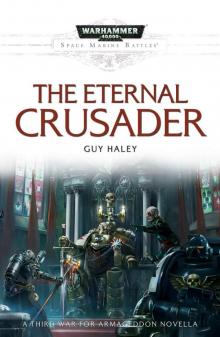 The Eternal Crusader - Guy Haley
The Eternal Crusader - Guy Haley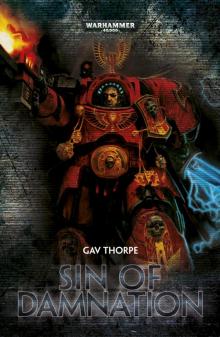 Sin of Damnation - Gav Thorpe
Sin of Damnation - Gav Thorpe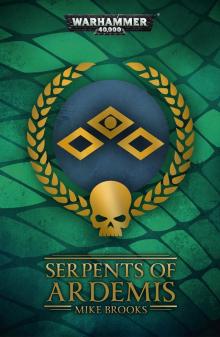 Serpents of Ardemis - Mike Brooks
Serpents of Ardemis - Mike Brooks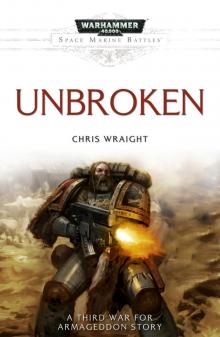 Unbroken - Chris Wraight
Unbroken - Chris Wraight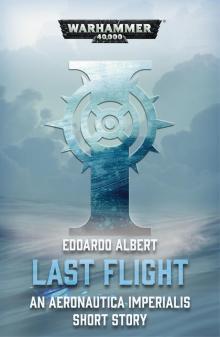 Last Flight - Edoardo Albert
Last Flight - Edoardo Albert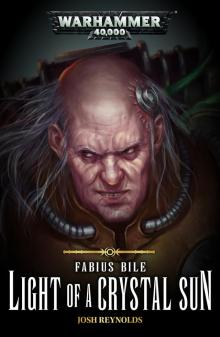 Light of a Crystal Sun - Josh Reynolds
Light of a Crystal Sun - Josh Reynolds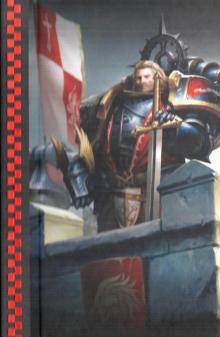 Lion El'Jonson- Lord of the First - David Guymer
Lion El'Jonson- Lord of the First - David Guymer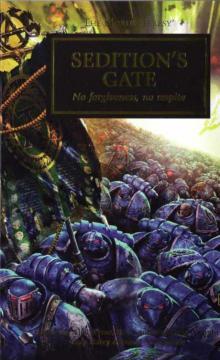 Sedition's Gate - Nick Kyme & Chris Wraight
Sedition's Gate - Nick Kyme & Chris Wraight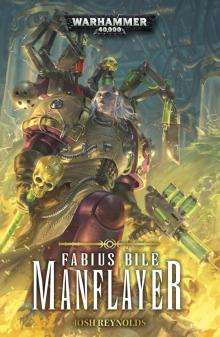 Manflayer - Josh Reynolds
Manflayer - Josh Reynolds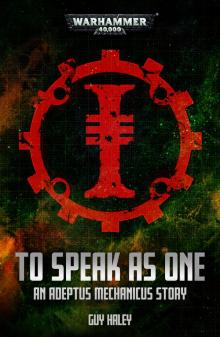 To Speak as One - Guy Haley
To Speak as One - Guy Haley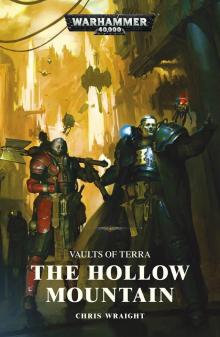 Vaults of Terra- The Hollow Mountain - Chris Wraight
Vaults of Terra- The Hollow Mountain - Chris Wraight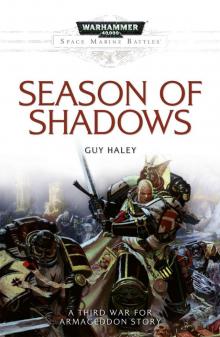 Season of Shadows - Guy Haley
Season of Shadows - Guy Haley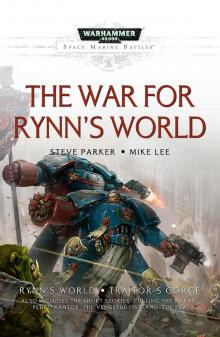 The War for Rynn's World - Steve Parker & Mike Lee
The War for Rynn's World - Steve Parker & Mike Lee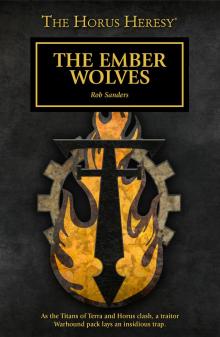 The Ember Wolves - Rob Sanders
The Ember Wolves - Rob Sanders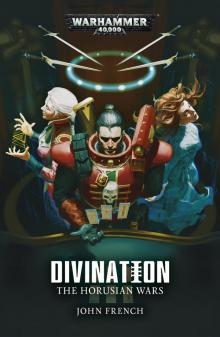 Divination - John French
Divination - John French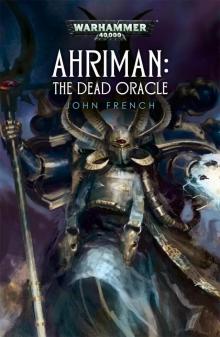 The Dead Oracle - John French
The Dead Oracle - John French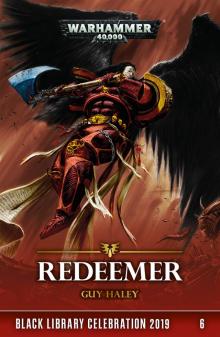 Redeemer - Guy Haley
Redeemer - Guy Haley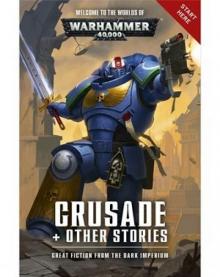 Crusade & Other Stories - Dan Abnett Et Al.
Crusade & Other Stories - Dan Abnett Et Al.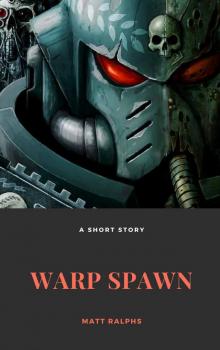 Warp Spawn - Matt Ralphs
Warp Spawn - Matt Ralphs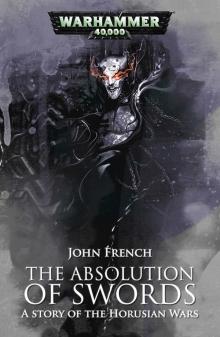 The Absolution of Swords - John French
The Absolution of Swords - John French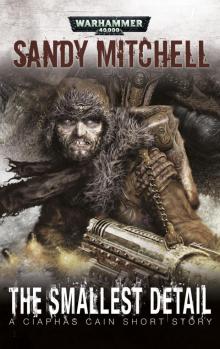 The Smallest Detail - Sandy Mitchell
The Smallest Detail - Sandy Mitchell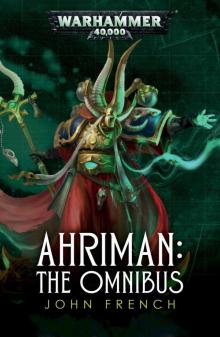 The Omnibus - John French
The Omnibus - John French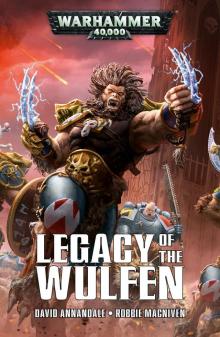 Legacy of the Wulfen - David Annandale & Robbie MacNiven
Legacy of the Wulfen - David Annandale & Robbie MacNiven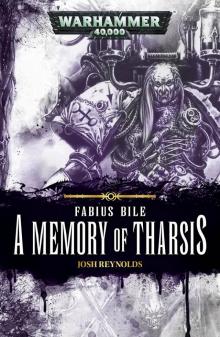 A Memory of Tharsis - Josh Reynolds
A Memory of Tharsis - Josh Reynolds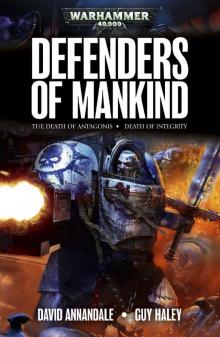 Defenders of Mankind - David Annandale & Guy Haley
Defenders of Mankind - David Annandale & Guy Haley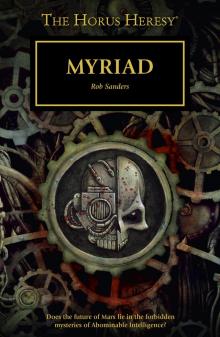 Myriad - Rob Sanders
Myriad - Rob Sanders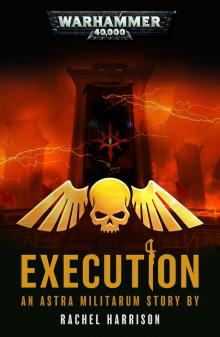 Execution - Rachel Harrison
Execution - Rachel Harrison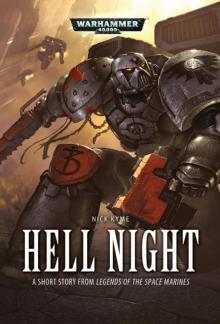 Hell Night - Nick Kyme
Hell Night - Nick Kyme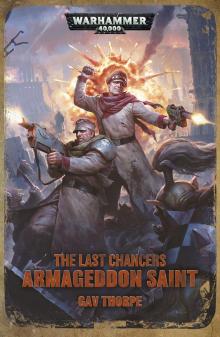 Armageddon Saint - Gav Thorpe
Armageddon Saint - Gav Thorpe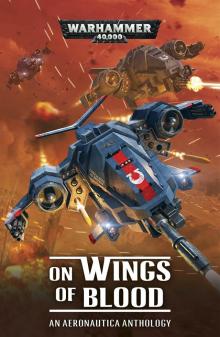 On Wings of Blood
On Wings of Blood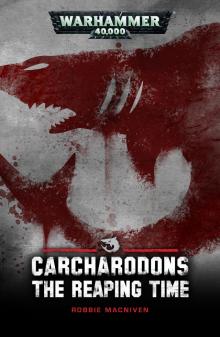 The Reaping Time - Robbie MacNiven
The Reaping Time - Robbie MacNiven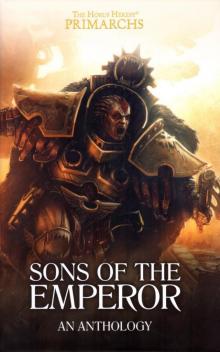 Sons of the Emperor
Sons of the Emperor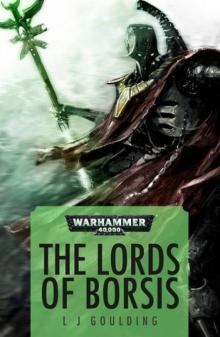 The Lords of Borsis - L J Goulding
The Lords of Borsis - L J Goulding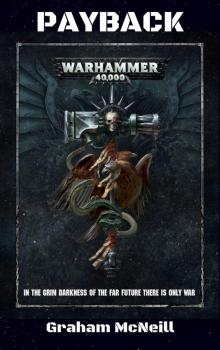 Payback - Graham McNeill
Payback - Graham McNeill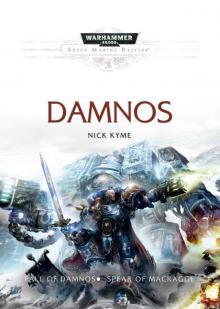 Damnos - Nick Kyme
Damnos - Nick Kyme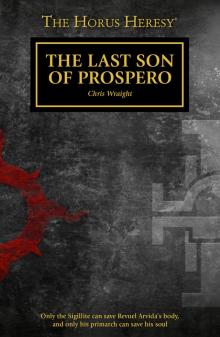 The Last Son of Prospero - Chris Wraight
The Last Son of Prospero - Chris Wraight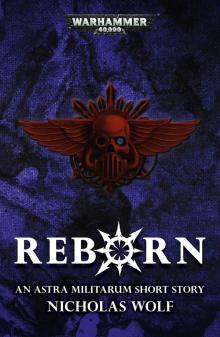 Reborn - Nicholas Wolf
Reborn - Nicholas Wolf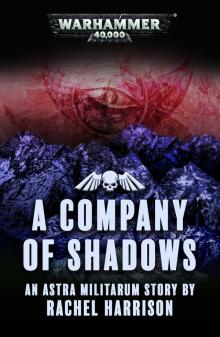 A Company of Shadows - Rachel Harrison
A Company of Shadows - Rachel Harrison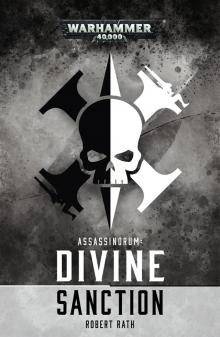 Assassinorum- Divine Sanction - Robert Rath
Assassinorum- Divine Sanction - Robert Rath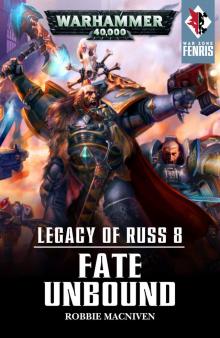 Fate Unbound - Robbie MacNiven
Fate Unbound - Robbie MacNiven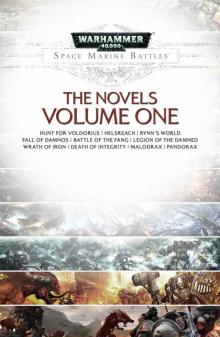 Space Marine Battles - the Novels Volume 1
Space Marine Battles - the Novels Volume 1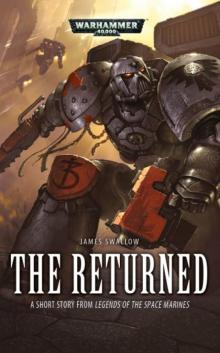 The Returned - James Swallow
The Returned - James Swallow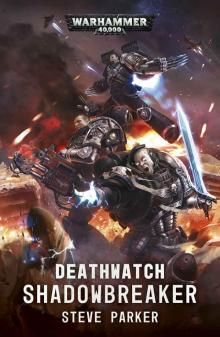 Shadowbreaker - Steve Parker
Shadowbreaker - Steve Parker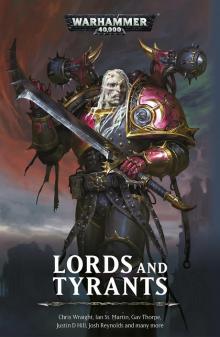 Lords and Tyrants
Lords and Tyrants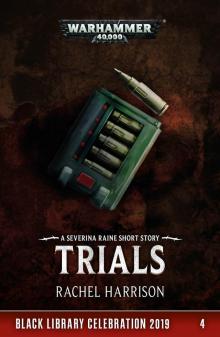 Trials - Rachel Harrison
Trials - Rachel Harrison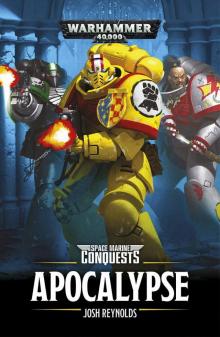 Apocalypse - Josh Reynolds
Apocalypse - Josh Reynolds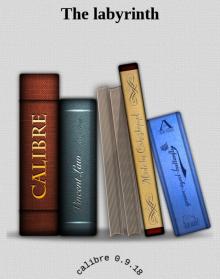 The labyrinth - Richard Ford
The labyrinth - Richard Ford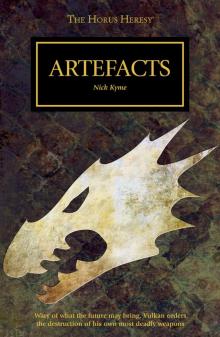 Artefacts - Nick Kyme
Artefacts - Nick Kyme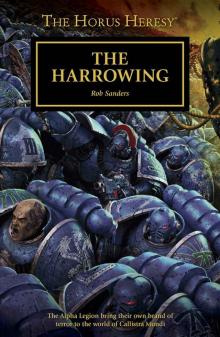 The Harrowing - Rob Sanders
The Harrowing - Rob Sanders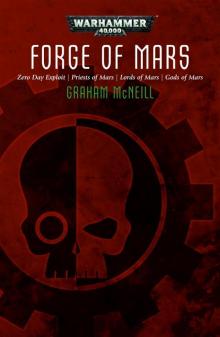 Forge of Mars - Graham McNeill
Forge of Mars - Graham McNeill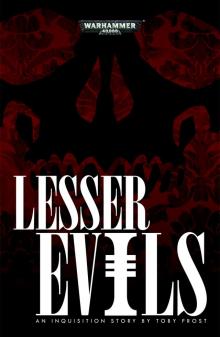 Lesser Evils - Toby Frost
Lesser Evils - Toby Frost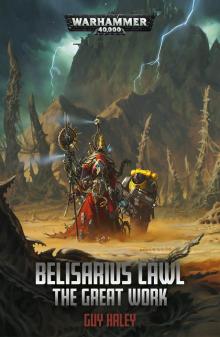 Belisarius Cawl- the Great Work - Guy Haley
Belisarius Cawl- the Great Work - Guy Haley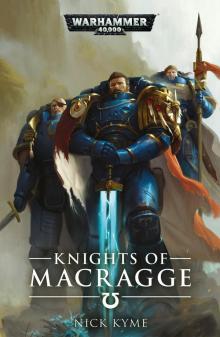 Knights of Macragge - Nick Kyme
Knights of Macragge - Nick Kyme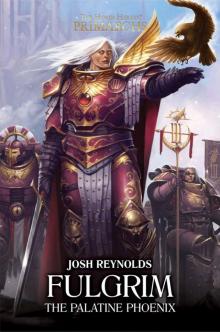 Fulgrim- The Palatine Phoenix - Josh Reynolds
Fulgrim- The Palatine Phoenix - Josh Reynolds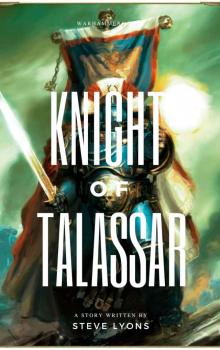 Knight of Talassar - Steve Lyons
Knight of Talassar - Steve Lyons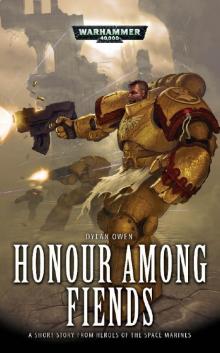 Honour Among Fiends - Dylan Owen
Honour Among Fiends - Dylan Owen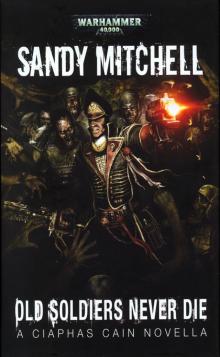 Old Soldiers Never Die - Sandy Mitchell
Old Soldiers Never Die - Sandy Mitchell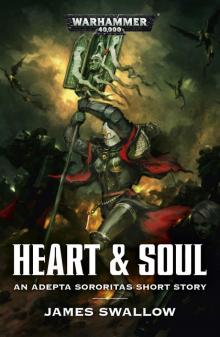 Heart & Soul - James Swallow
Heart & Soul - James Swallow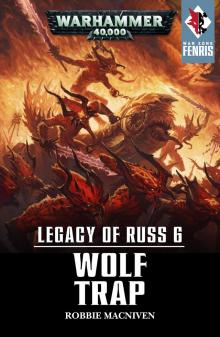 Wolf Trap - Robbie MacNiven
Wolf Trap - Robbie MacNiven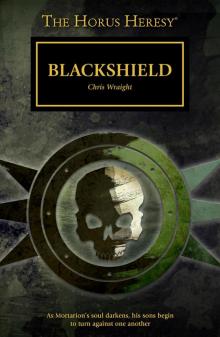 Blackshield - Chris Wraight
Blackshield - Chris Wraight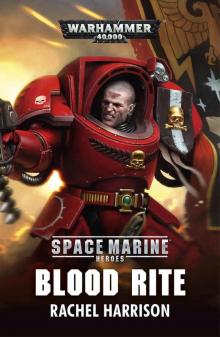 Blood Rite - Rachel Harrison
Blood Rite - Rachel Harrison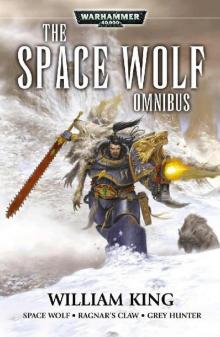 The Space Wolf Omnibus - William King
The Space Wolf Omnibus - William King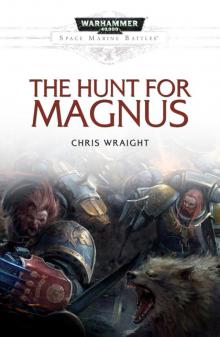 The Hunt for Magnus - Chris Wraight
The Hunt for Magnus - Chris Wraight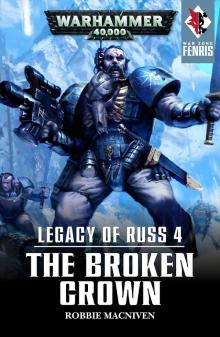 The Broken Crown - Robbie MacNiven
The Broken Crown - Robbie MacNiven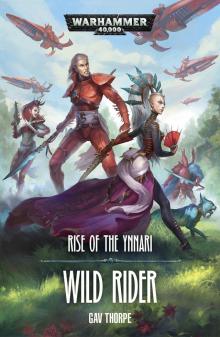 Wild Rider - Gav Thorpe
Wild Rider - Gav Thorpe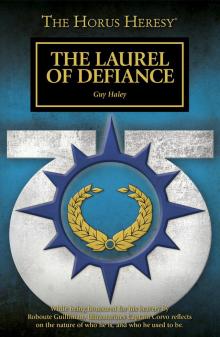 The Laurel of Defiance - Guy Haley
The Laurel of Defiance - Guy Haley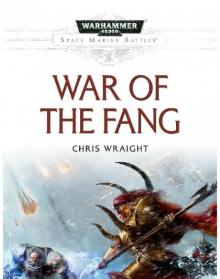 War of the Fang - Chris Wraight
War of the Fang - Chris Wraight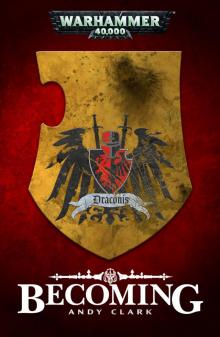 Becoming - Andy Clark
Becoming - Andy Clark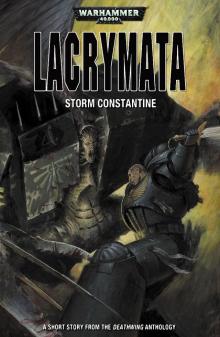 Lacrymata - Storm Constantine
Lacrymata - Storm Constantine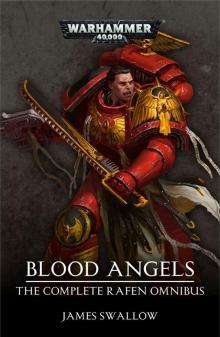 Blood Angels - The Complete Rafen Omnibus - James Swallow
Blood Angels - The Complete Rafen Omnibus - James Swallow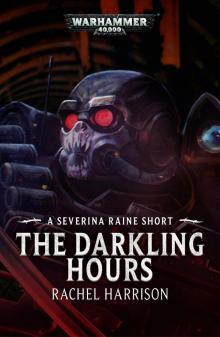 The Darkling Hours - Rachel Harrison
The Darkling Hours - Rachel Harrison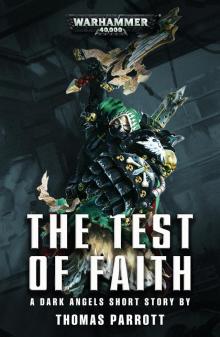 The Test of Faith - Thomas Parrott
The Test of Faith - Thomas Parrott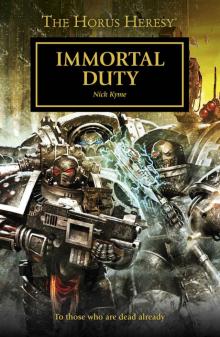 Immortal Duty - Nick Kyme
Immortal Duty - Nick Kyme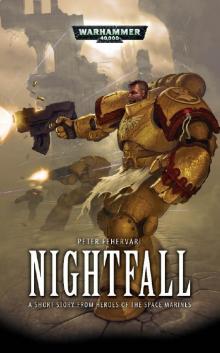 Nightfall - Peter Fehervari
Nightfall - Peter Fehervari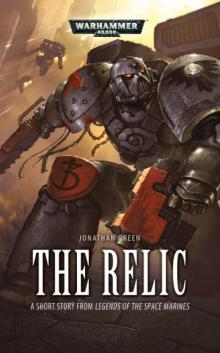 The Relic - Jonathan Green
The Relic - Jonathan Green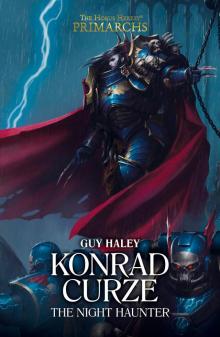 Konrad Curze the Night Haunter - Guy Haley
Konrad Curze the Night Haunter - Guy Haley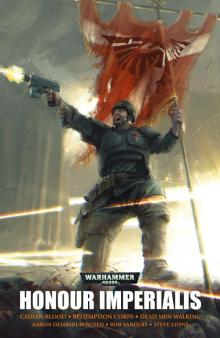 Honour Imperialis - Aaron Dembski-Bowden
Honour Imperialis - Aaron Dembski-Bowden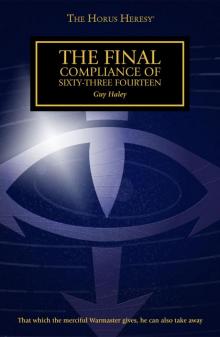 The Final Compliance of Sixty-Three Fourteen - Guy Haley
The Final Compliance of Sixty-Three Fourteen - Guy Haley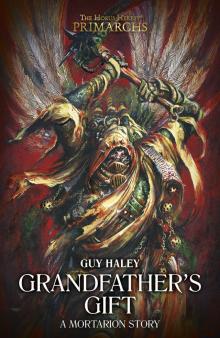 Grandfather’s Gift - Guy Haley
Grandfather’s Gift - Guy Haley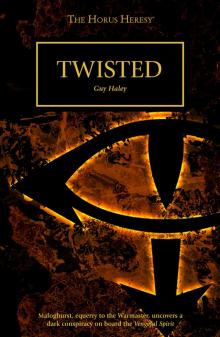 Twisted - Guy Haley
Twisted - Guy Haley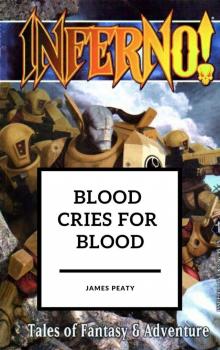 Blood Cries for Blood - James Peaty
Blood Cries for Blood - James Peaty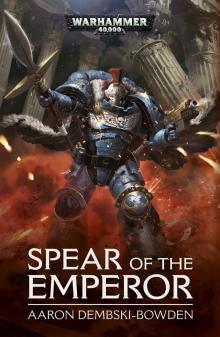 Spear of the Emperor - Aaron Dembski-Bowden
Spear of the Emperor - Aaron Dembski-Bowden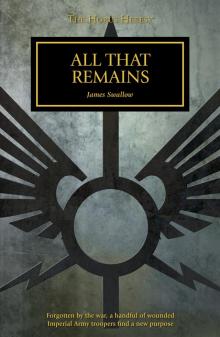 All That Remains - James Swallow
All That Remains - James Swallow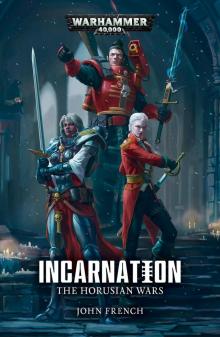 Incarnation - John French
Incarnation - John French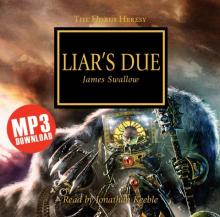 Liar's Due - Ben Swallow
Liar's Due - Ben Swallow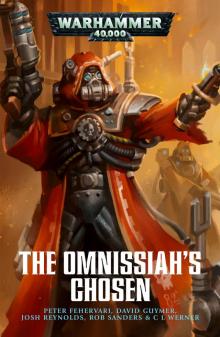 The Omnissiah's Chosen - Peter Fehervari
The Omnissiah's Chosen - Peter Fehervari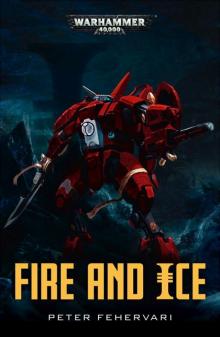 Fire and Ice - Peter Fehervari
Fire and Ice - Peter Fehervari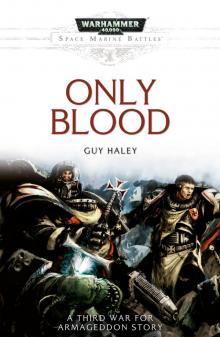 Only Blood - Guy Haley
Only Blood - Guy Haley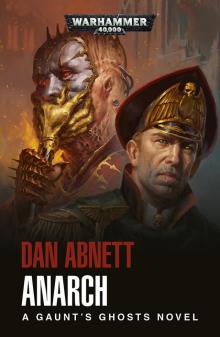 Anarch - Dan Abnett
Anarch - Dan Abnett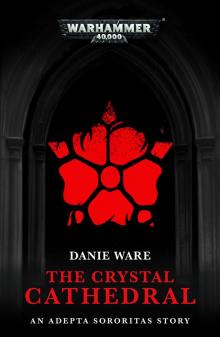 The Crystal Cathedral - Danie Ware
The Crystal Cathedral - Danie Ware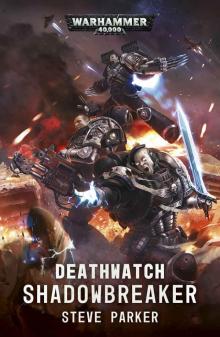 Shadowbreaker
Shadowbreaker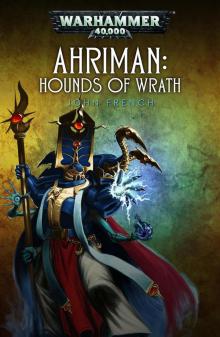 Hounds of Wrath - John French
Hounds of Wrath - John French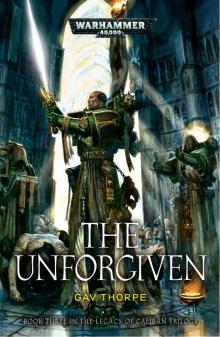 The Unforgiven - Gav Thorpe
The Unforgiven - Gav Thorpe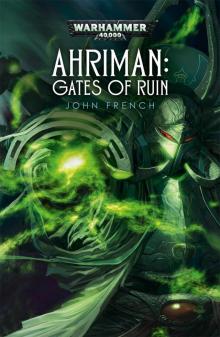 Gates of Ruin - John French
Gates of Ruin - John French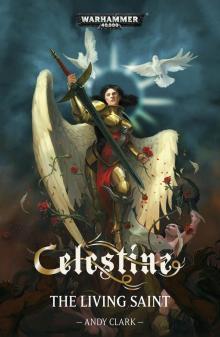 Celestine - Andy Clark
Celestine - Andy Clark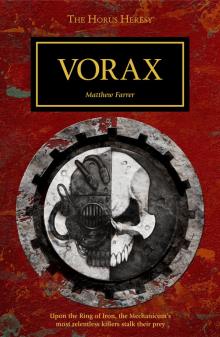 Vorax - Matthew Farrer
Vorax - Matthew Farrer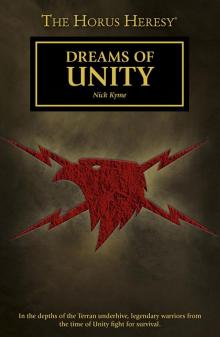 Dreams of Unity - Nick Kyme
Dreams of Unity - Nick Kyme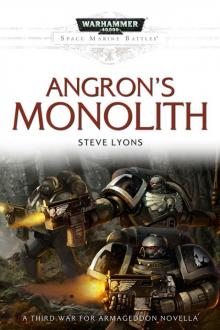 Angron's Monolith - Steve Lyons
Angron's Monolith - Steve Lyons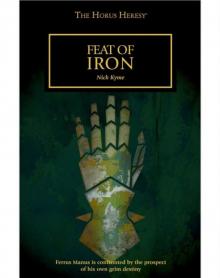 Feat of Iron - Nick Kyme
Feat of Iron - Nick Kyme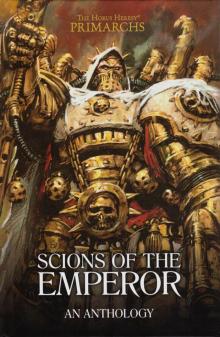 Scions of the Emperor
Scions of the Emperor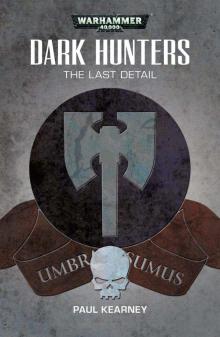 The Last Detail - Paul Kearney
The Last Detail - Paul Kearney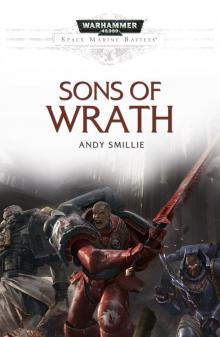 Sons of Wrath - Andy Smillie
Sons of Wrath - Andy Smillie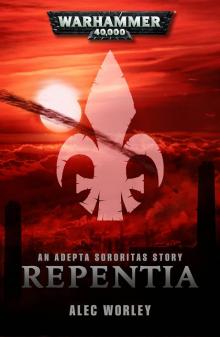 Repentia - Alec Worley
Repentia - Alec Worley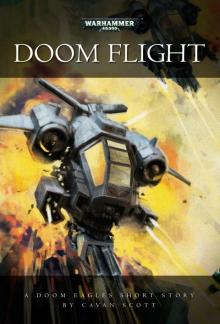 Doom Flight - Cavan Scott
Doom Flight - Cavan Scott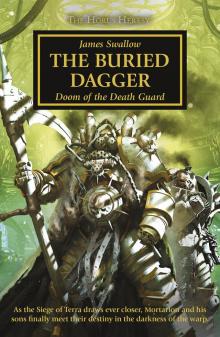 The Buried Dagger - James Swallow
The Buried Dagger - James Swallow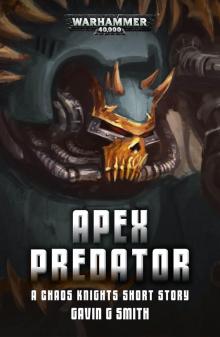 Apex Predator - Gavin G Smith
Apex Predator - Gavin G Smith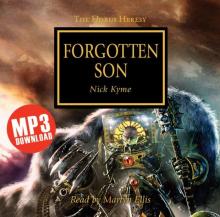 Forgotten Sons - Nick Kyme
Forgotten Sons - Nick Kyme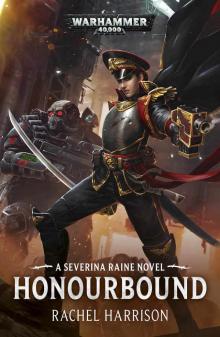 Honourbound - Rachel Harrison
Honourbound - Rachel Harrison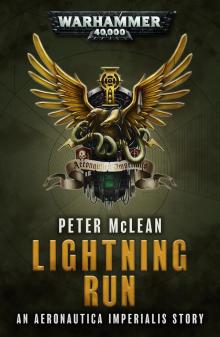 Lightning Run - Peter McLean
Lightning Run - Peter McLean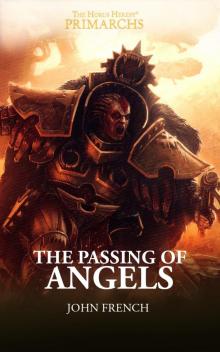 The Passing of Angels - John French
The Passing of Angels - John French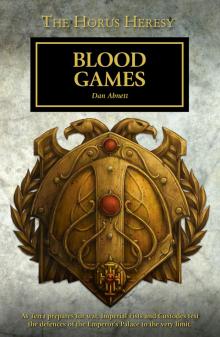 Blood Games - Dan Abnett
Blood Games - Dan Abnett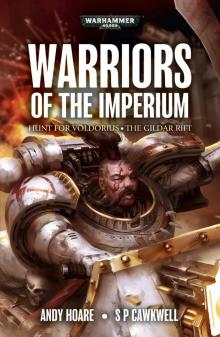 Warriors of the Imperium - Andy Hoare & S P Cawkwell
Warriors of the Imperium - Andy Hoare & S P Cawkwell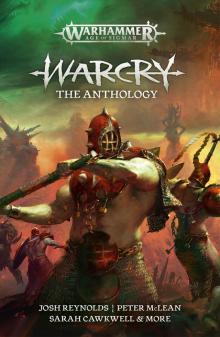 Warcry
Warcry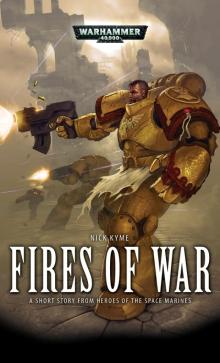 Fires of War - Nick Kyme
Fires of War - Nick Kyme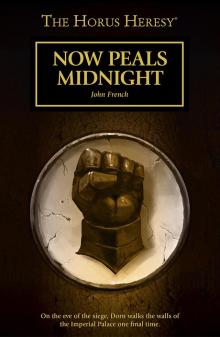 Now Peals Midnight - John French
Now Peals Midnight - John French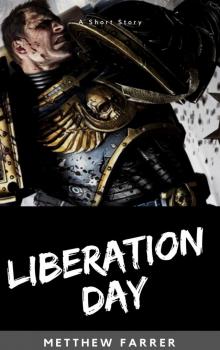 Liberation Day - Matthew Farrer
Liberation Day - Matthew Farrer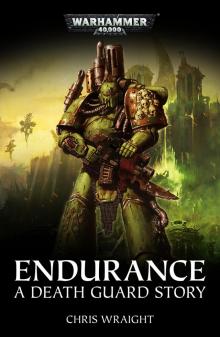 Endurance - Chris Wraight
Endurance - Chris Wraight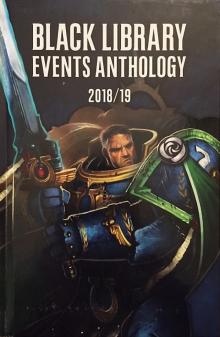 Black Library Events Anthology 2018-19
Black Library Events Anthology 2018-19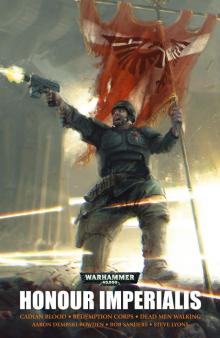 Honour Imperialis - Braden Campbell & Aaron Dembski-Bowden & Chris Dows & Steve Lyons & Rob Sanders
Honour Imperialis - Braden Campbell & Aaron Dembski-Bowden & Chris Dows & Steve Lyons & Rob Sanders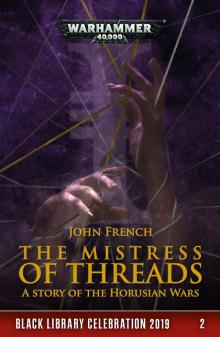 The Mistress of Threads - John French
The Mistress of Threads - John French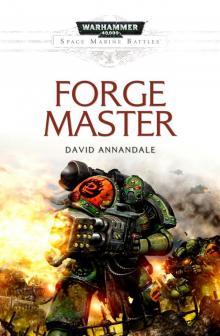 Forge Master - David Annandale
Forge Master - David Annandale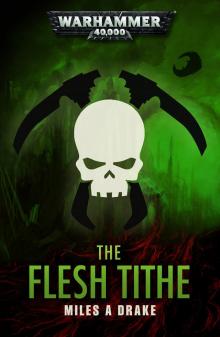 The Flesh Tithe - Miles A Drake
The Flesh Tithe - Miles A Drake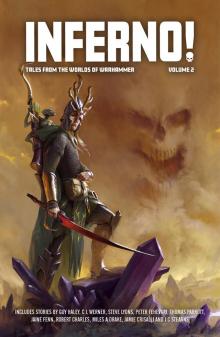 Inferno Volume 2 - Guy Haley
Inferno Volume 2 - Guy Haley Mercy of the Dragon - Nick Kyme
Mercy of the Dragon - Nick Kyme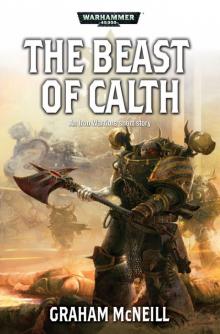 The Beast of Calth - Graham McNeill
The Beast of Calth - Graham McNeill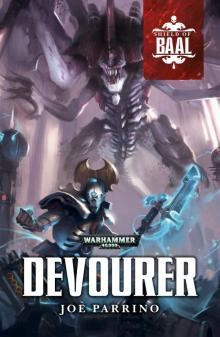 Devourer - Joe Parrino
Devourer - Joe Parrino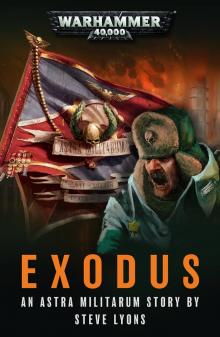 Exodus - Steve Lyons
Exodus - Steve Lyons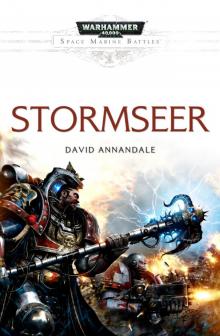 Stormseer - David Annandale
Stormseer - David Annandale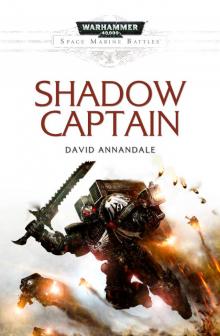 Shadow Captain - David Annandale
Shadow Captain - David Annandale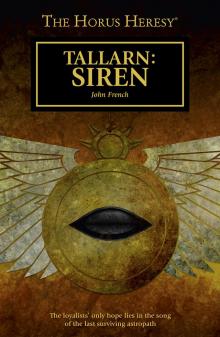 Tallarn- Siren - John French
Tallarn- Siren - John French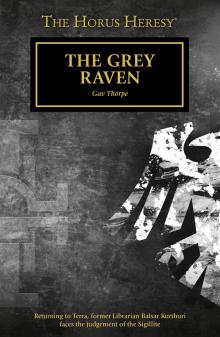 The Grey Raven - Gav Thorpe
The Grey Raven - Gav Thorpe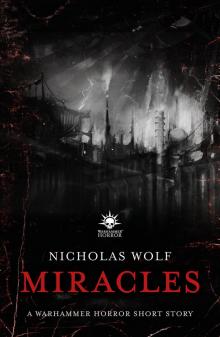 Miracles - Nicholas Wolf
Miracles - Nicholas Wolf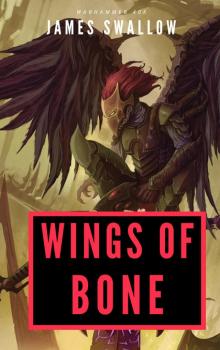 Wings of Bone - James Swallow
Wings of Bone - James Swallow